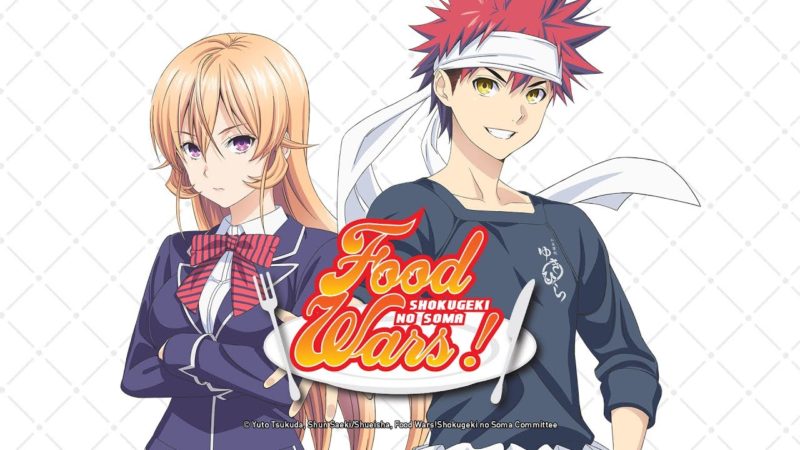
I enjoyed watching Iron Chef back in the day, but when I first saw a Food Wars preview on Crunchyroll, I had little interest in it. As you likely know (if you’ve followed JP for any length of time), I don’t like fan-service. It stops anime from being more widely accepted in the West (of course, anime is mainstream now). Now every once in awhile I come across a story that uses fan-service to prove a point, like Kill la Kill. Those instances I enjoy. Food Wars looked to be just another one of those stories that uses fan-service just for the sake of it. Pretty much like how Game of Thrones used sex and nudity just for the sake of it.
I was wrong.
Food Wars follows Soma Yukihira and friends as they attend a strict cooking school that expels anyone who can’t make the cut. The school is ruled by the usual student counsel and a rule that allows conflicts to be settled with a cooking battle. Anything can be settled through this method, including entrance to the student counsel and the rules of the school itself.
Food Wars grabbed my interest and even made me laugh out loud, which is something few anime can do lately. The fan-service I didn’t want to see actually worked. For awhile. Food Wars uses fan-service and sexually charged scenes to visually illustrate flavor. I found the solution unique. Visual mediums struggle to show scent and taste in effective ways. The odd exploding clothing–equally done with men and women, young and old–simulates the shock food can have on the senses. Even the sexual moans and other sexual visuals works because food is one of the most bodily of experiences, right up there with sex.
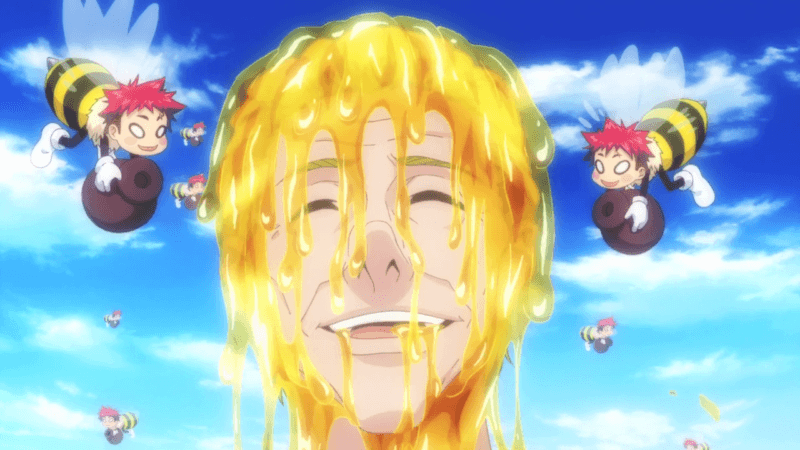
As the series continues, these fan-service scenes become less frequent. Detailed analysis of how the spices and ingredients and cooking methods take over. Food Wars‘ odd visuals remain to keep the show from becoming too technical and dry. The shift follows the characters’ increasingly sophisticated cooking and challenges. It also illustrates how the bar for their tastes rises as they get used to gourmet cuisine. It’s a subtle but interesting point. As we get used to anything, we lose our excitement and have to seek the next level (of food in this case). In a way, we could see this as commentary about fan-service too. As we get used to fan-service, it takes more overt and over-the-top scenes to titillate–larger and larger breasts or ever-more muscular men, for example.
The story focuses on Soma’s disregard for authority and his willingness to fail. Soma isn’t a hothead, as shonen characters go, which I find refreshing. While he hates losing, he takes the lessons from each loss and applies them to his cooking. His willingness to fail and to experiment contrasts with the larger school environment where people fear failure and the expulsion that follows. In fact, Food Wars makes for a good allegory for our society. Few people embrace failure and even relish it as Soma does with his purposefully disgusting recipes. Most schools punish wrong answers, which contradicts how people succeed. Success happens to those who fail, fail often, fail hard, and learn from those failures.
While Soma’s story sits in the center of the series, the supporting cast has developed arcs that work rather well. I especially like Megumi’s plot. It’s stereotyped with how she succeeds with the support of all her friends, but I found her arc the most interesting of the supporting cast. Her friendship with Soma is refreshing. They lack the usual sexual tension shonen anime overuses between opposite-gender friends. I also like the fact she is an introvert. In most anime, introverts fail. They fail in relationships and come off as helpless or, at the least, not as capable as the extroverted (read: loud) protagonist. Megumi can hold her own with the most aggressive and extroverted opponents, and she does it in her own way. It’s refreshing to see an introvert that doesn’t have to shed her nature in order to succeed.
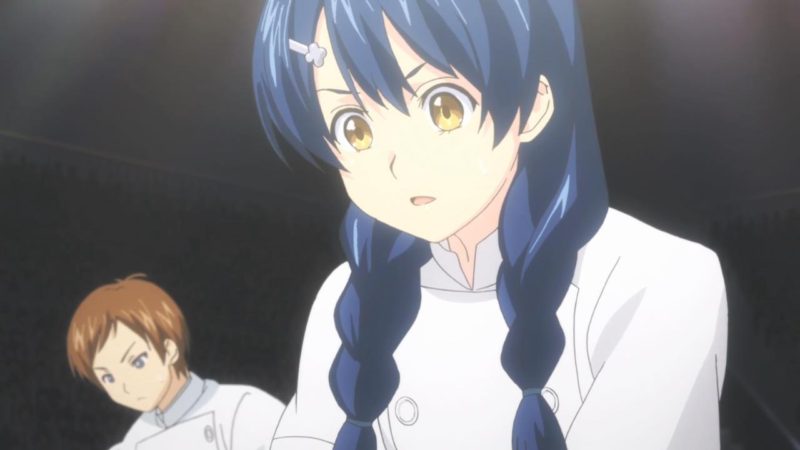
I’ve read a few articles that suggest there is a bias against female characters in Food Wars as they increasingly lose to the men. The support of Megumi’s male villagers can be interpreted as a girl who can’t make it on her own. But during that section of Megumi’s arc, I saw it as Megumi taking control of her own education. She pesters fishermen until they show her what she wants to learn. She teaches herself how to use her village’s ingredients to best effect. Throughout the Megumi vs. Miyoko Hojo, Megumi illustrates how she proved herself. Hojo, however, fails to gain the support of the men she worked with and developed a can-do-it attitude. Instead of it being a contrast with sexism and support, it carries the theme underpinning most of Food Wars: no one can do it alone. Megumi is also a traditional Japanese girl, so the fact she takes control of her own education sends and empowering message.
That theme appears in Soma’s arc too. While he learns by failure, his opponents become teachers, and he also asks for help from the supporting cast. He doesn’t go at it alone. He treats his opponents like friends. Megumi’s arc compresses Soma’s, and the theme appears in each of the arcs of the supporting cast.
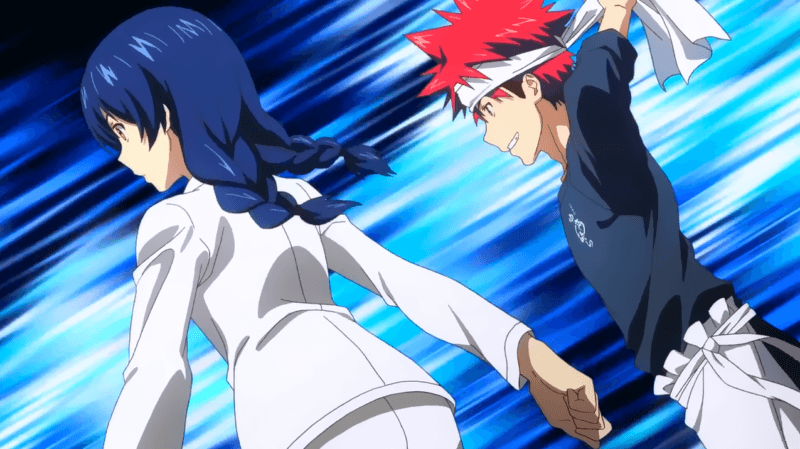
Food Wars tantalized me with its cooking drama and interesting characters. Megumi’s introversion and Soma’s lack of typical shonen foolishness attracted me. I felt relieved not to have yet another meathead protagonist. That isn’t to say Soma isn’t dense or sometimes shonen in his outbursts, but for the most part he remains level-headed and thoughtful. I can’t express how refreshing this is for me. Meatheadedness prevents me from joining the anime community in thinking Fullmetal Alchemist: Brotherhood is better than the original anime (Ed and Al are far too braindead in Brotherhood compared to the original). Meathead protagonist–those that don’t use their smarts to achieve their goals and instead just brute force their way to their win–make me dislike shonen sometimes. The entire premise behind Food Wars lies with planning. In order to succeed, the characters have to plan ahead and surmise what their opponents may do so they can counter it. The real cooking and conflict happens before the cook-off. This makes the series uniquely intelligent. The characters can’t just enter the kitchen and cook whatever. Instead, they plan, test, and test again. The show often shows the characters doing this, like Soma testing over a dozen types of beef stew during one challenge. They have to understand their ingredients, judges, opponents, and other conditions in order to win. No one in the show is an idiot. The nature of the school removes them.
Food Wars has problems, like pushing the fan-service visuals a little too far, but it made me want to dig out some old episodes of Iron Chef. It gives nods to various anime, such as Jojo’s Bizarre Adventure, and teaches how failure leads to success. Food Wars, which sits in the middle of the cerebral and the meathead, helps me remember how entertaining anime can be.
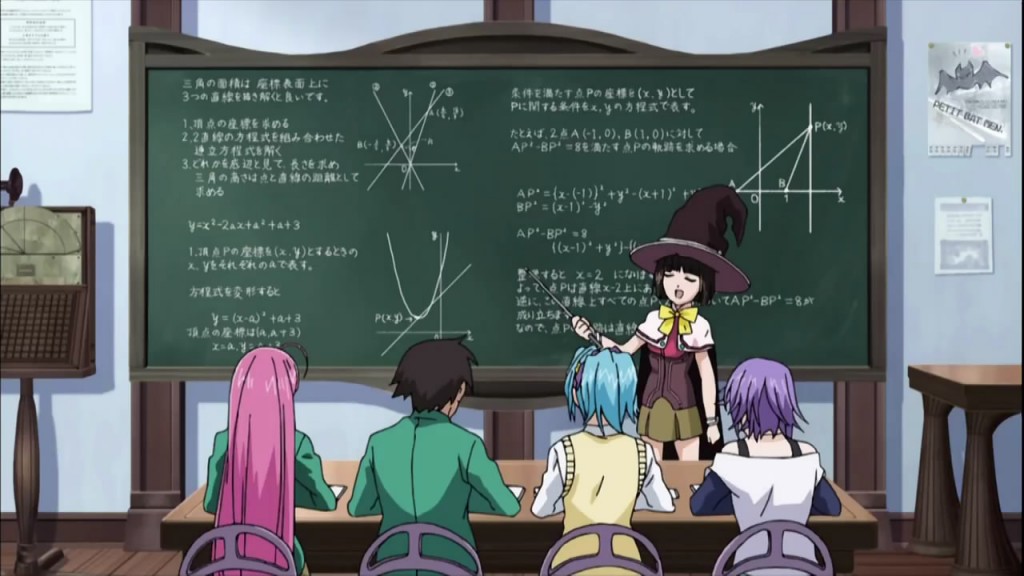
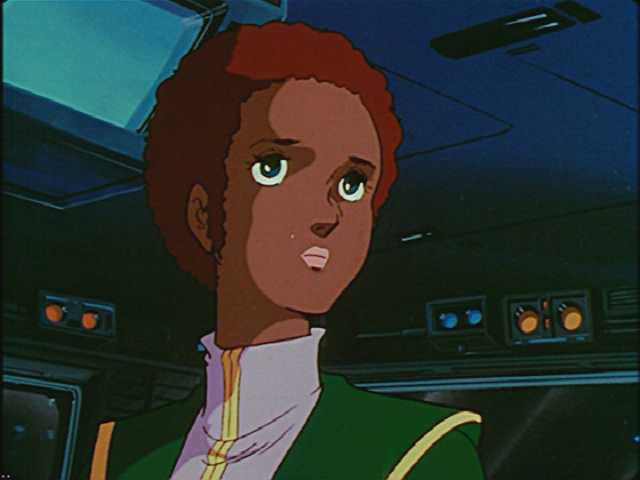
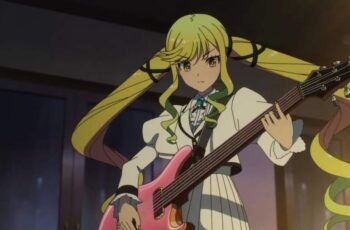
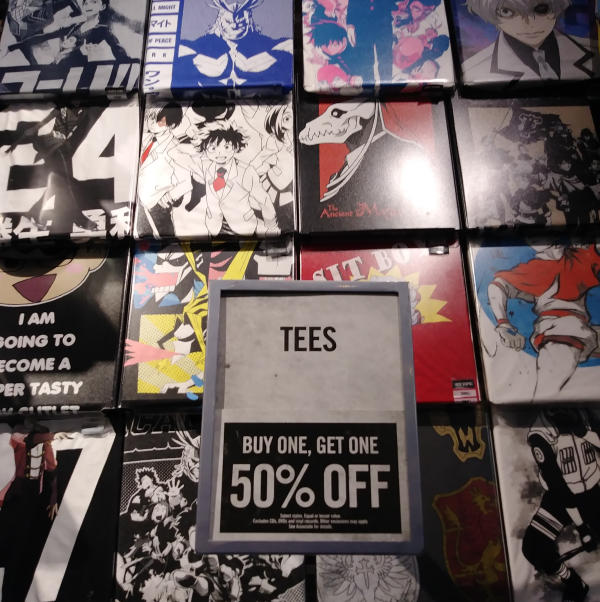
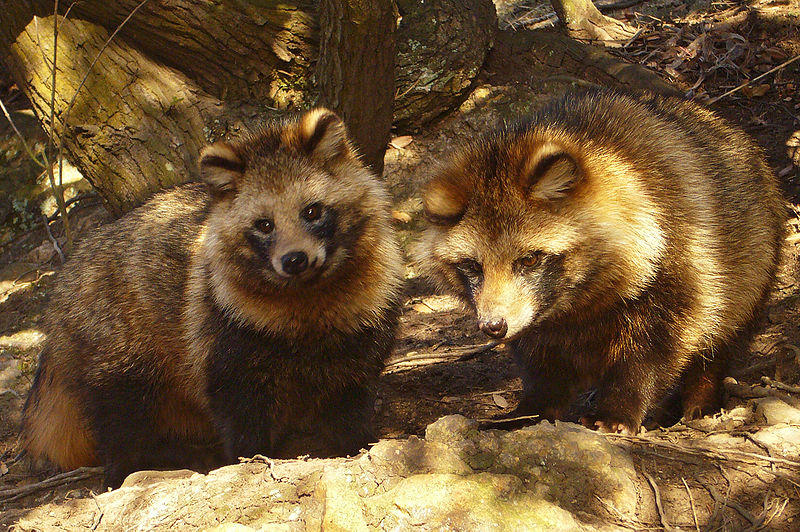
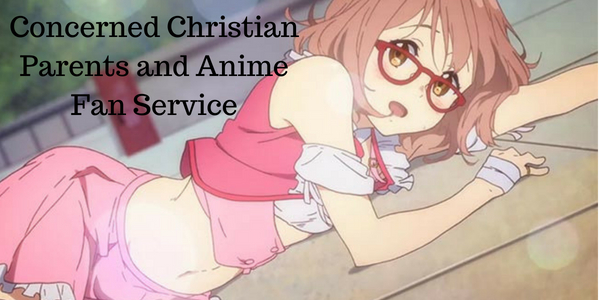
I followed the Food Wars manga a while back, but then I stopped because the story seemed to have lost track of what made it great to many fans. There was little excitement when the manga ended too.
That’s too bad. But that also explains why the anime petered out and ended somewhat abruptly. It seems common for a series to lose its way.
In all honesty I had completely passed on food wars, but now after reading your thoughts on it, I might just have to go and give it a look.